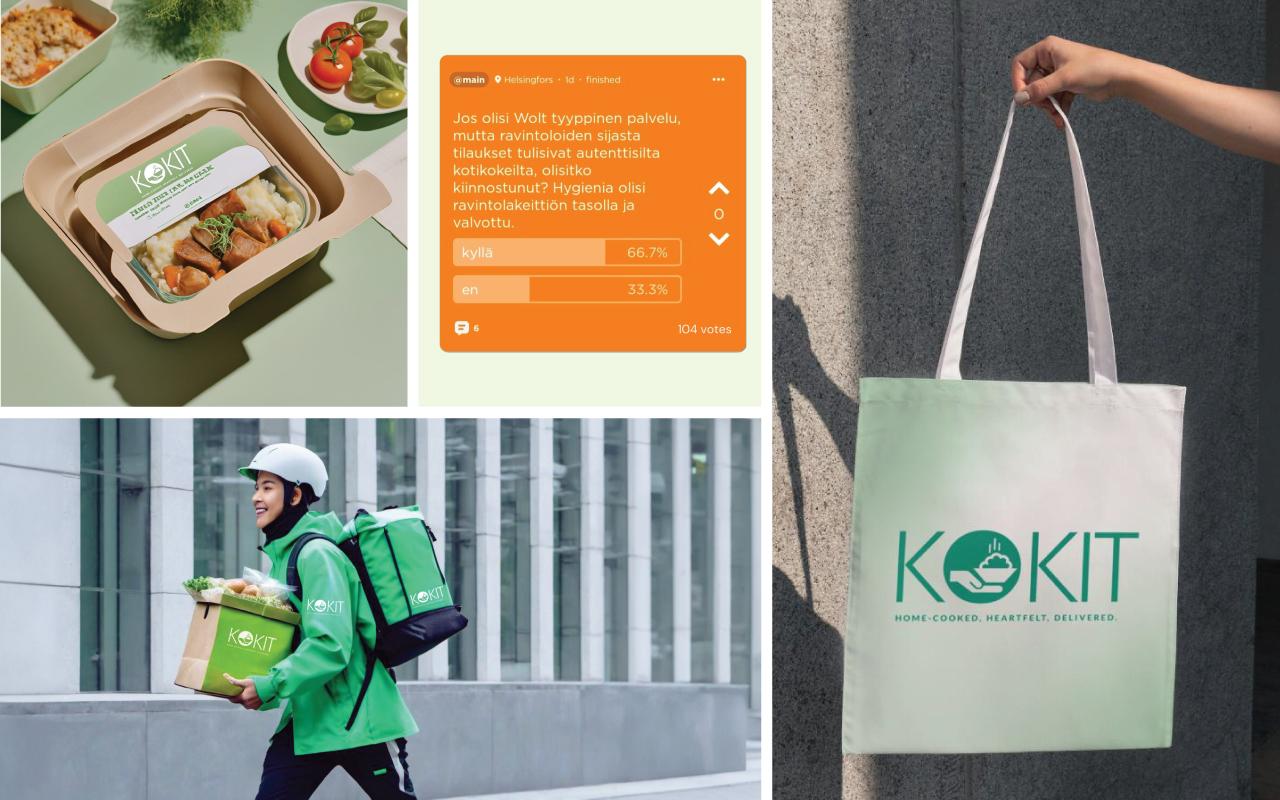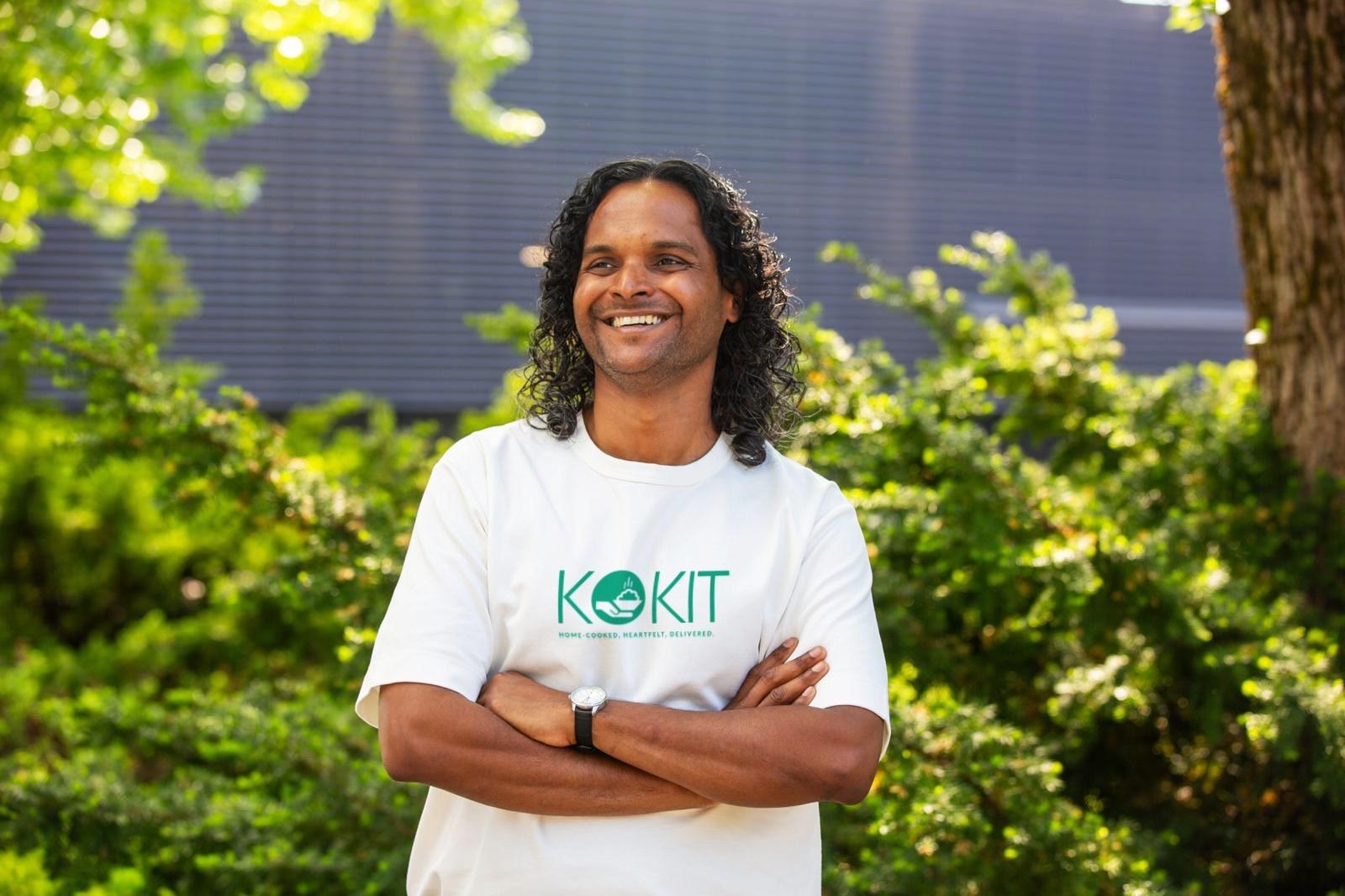
Hussain Shaikh introduces the Kokit app to help professional chefs offer their food directly to consumers.
A Food Service Entrepreneur Puts Home Chefs to Work
Mumbai-native Hussain Shaikh moved to Turku and founded a startup in Somero with a plan to offer restaurant-quality food delivered to your doorstep. The twist? Instead of traditional restaurants, the dishes are prepared by chefs in their own homes. The entrepreneur believes this concept will invigorate local communities and provide opportunities even for competitors in the industry.
Imagine a novel food service akin to Wolt. Through it you could order authentic home-cooked meals prepared by professional chefs in their home kitchens. The service is designed to adhere to strict health and safety standards. Quality is uncompromised.
Around such a concept Hussain Shaikh has built the startup Slum Boy Oy, which is registered in Somero. By next fall, consumers can expect to find it alongside Wolt and Foodora in app stores. But what sets this app apart from its competitors?
“In Finland, food service offerings are largely limited to burgers, pizzas, kebabs, and oriental cuisine. However, there are many chefs with a much more diverse range of offerings but no means to finance them. We are bridging this gap,” Shaikh explains.

The Kokit brand is currently being promoted. Feedback on the app has been sought through market research. It has provided Hussain with information on customer attitudes.
In Support for Chefs
The cornerstone of this ambitious service lies in it’s support for chefs. Shaikh, himself a professional chef with work experience in India and Saudi Arabia, is familiar with the risks associated with opening a restaurant.
“60% of newly established restaurants close within the first year. Therefore I started thinking about a solution for chefs to cook and run a business without having to open their own restaurant.”
This led to the creation of the Kokit app. In this service, the food delivery starts in the chefs’ own kitchens and ends at the customer’s doorstep.
But the process involves carefully thought-out steps. All chefs are evaluated for quality assurance. Kitchens are inspected and approvals are obtained in accordance with food industry protocols.
“We also ensure the kitchens meet hygiene standards, as well as help chefs register in the app’s system. Chefs determine their own offerings. I handle the administration and marketing,” says Shaikh.
Product Development in Full Swing
Services like Kokit have yet to be seen in Finland, although according to Shaikh they exist elsewhere in the world.
“In the UK, there’s a similar Chef app. In Asia, there’s Cooker. This is good because we can learn from them and develop Kokit in the right direction,” Shaikh says.
Slum Boy Oy is only two months old, but active product development and service design have already resulted in the Kokit brand. Shaikh and his team have also developed marketing materials, including the concept and logo.
“I have a team of four supporting me. We are currently conducting market research and promoting the service. We are also identifying events where we could promote the app.”
Trial Period This Fall
The founder of Slum Boy Oy believes there is a niche for a home-cooked meal service in Finland. However, he is not taking the market entry lightly.
“I don’t want to rush, but rather proceed step by step. To start the business, I have secured an angel investor with a €32,000 investment,” says Shaikh.
He has already interviewed 15 chefs from Turku, all representing different culinary traditions. The offerings will include Greek, Thai, Peruvian, Indian, and of course, Finnish cuisine.
The concept is due to be launched in September. The target groups are 20–50 year olds, who want to order their food at home. The service is also great for people with reduced mobility. From the user’s point of view, ordering is no different from other food delivery services.
“The trial will last two and a half months. During this time, we will generate interest, get to know our users, and learn from our mistakes.”

The entrepreneur sees the Kokit app as a good fit for consumers – especially in smaller towns like Salo.
Boosting Local Communities
Shaikh is cautious about predicting the business’s growth. However, the fall trial will provide a basis for scaling up operations. After Turku, the service is planned to expand to Helsinki.
“Turku is a good place to start. Next spring, we aim to bring the app to Helsinki. We are also considering a long-term plan. Over the next two years, we aim to onboard more home chefs and expand to small towns like Salo,” says Shaikh.
Shaikh emphasises that small towns are not merely an addition alongside larger cities, but actually the core of Slum Boy Oy’s business philosophy.
“I come from the slums of Mumbai. I believe that small towns thrive on their own communities. With the Kokit app, I can help home chefs, which in turn strengthens the local economy. That’s why I’m happy to discuss possibilities with officials from towns like Salo.”
What about competition in the industry? What is it like for a company to enter the same market as Wolt?
“We are not really competing with Wolt, but with restaurants. With the Kokit app, home chefs become competitors to restaurants. Actually this could even lead to potential collaboration with Wolt,” Shaikh envisions.
Get to know Slum Boy Oy’s website and get in touch with Hussain Shaikh:
hello@kokit.fi
Article published 06/2024


